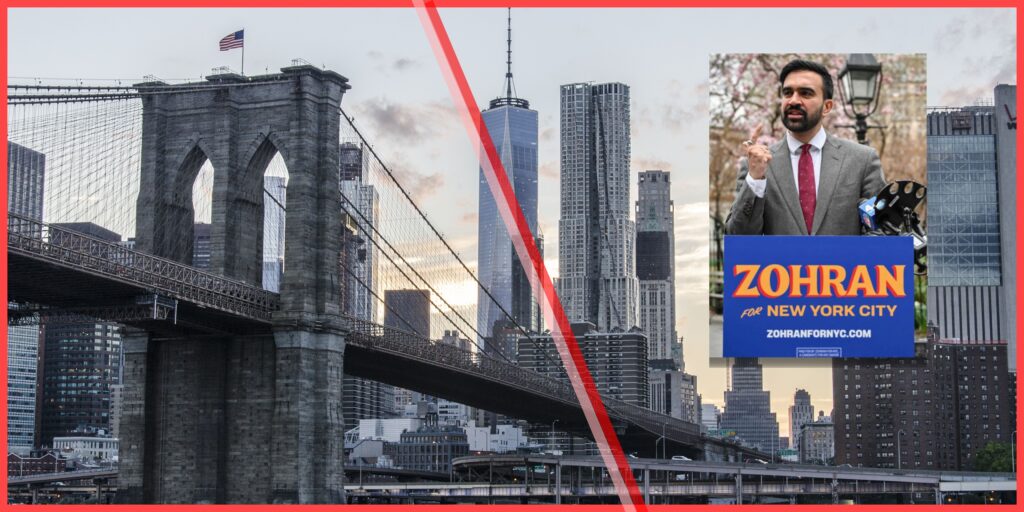Airbnb has spent $5 million to influence New York City’s 2025 elections, yet one of the candidates it tried to block, Zohran Mamdani, has just won the Democratic mayoral primary. The 33-year-old democratic socialist and outspoken critic of short-term rentals is not yet mayor, he still faces the general election in November, but his upset victory over former governor Andrew Cuomo signals potential turbulence ahead for Airbnb and the broader STR industry.
Mamdani was one of three progressive candidates targeted by Airbnb’s SuperPAC, Affordable New York, making this a notable moment in the company’s ongoing political engagement in key urban markets.
Why New York City Matters
New York remains a strategic, if contentious, market for Airbnb. In recent years, the city has implemented strict registration requirements for hosts, effectively banning short-term rentals unless the host is present. Thousands of listings have been removed, and enforcement is on the rise.
Against this backdrop, Airbnb has adopted a more public-facing and political approach. That includes funding a SuperPAC called Affordable New York, which has run ads, mailers, and digital campaigns to influence the 2025 municipal elections.
Mamdani Was One of Three Targeted Candidates
Affordable New York’s first major move was a $1 million ad campaign targeting Zohran Mamdani, Brad Lander, and Scott Stringer, three Democratic candidates known for their strong opposition to short-term rentals. These candidates had opposed a 2023 bill that would have partially legalized short-term rentals in one- and two-family homes. Though the bill was ultimately watered down, these voices remained vocal critics of Airbnb’s model.
While Airbnb never directly endorsed another candidate, its campaign was seen as indirectly boosting Andrew Cuomo, the former New York governor, who had entered the race with major financial backing and initial polling strength.
Mamdani’s Win: What It Means (and Doesn’t)
Mamdani’s victory over Cuomo in the Democratic primary is being described by political analysts as a seismic shift in New York City politics. A 33-year-old democratic socialist and sitting assemblymember, Mamdani ran on a progressive platform that emphasized affordability, tenant protections, and city-led social programs.
His rise was aided by ranked-choice voting, a system that allows voters to rank multiple candidates. Though Cuomo had a slight lead in first-choice votes, Mamdani surged ahead in the later rounds of redistribution. The general election in November remains open, with speculation that other candidates, including Cuomo or the incumbent mayor, could still run as independents.
For now, Mamdani is not mayor, but his primary win gives him strong momentum and puts a known Airbnb critic one step closer to the city’s top office.
A Cautionary Case for Political Spending?
Airbnb’s entry into the NYC elections has drawn global attention, not just because of the size of the spend, but because of the broader strategic shift it signals. The company has moved from backroom lobbying to public political engagement, framing its involvement not in terms of short-term rentals, but of “affordability” and “common sense solutions.”
By targeting candidates rather than endorsing others, the company sought to reduce direct ideological opposition and create a more favorable legislative environment, especially for reviving bills that could reopen the STR market in NYC.
Mamdani’s win complicates that plan. While it’s too soon to know how the general election will play out, the result so far raises a key question: Can political spending override grassroots momentum, or does it sometimes backfire?
That said, Airbnb’s political foray is still relatively new, and the race is far from over. There’s still time for a different outcome to emerge before, and even after, voters head to the polls in November.
For STR Managers Watching from Abroad
To European and international observers, Airbnb’s deep involvement in a municipal election may seem surprising. In the U.S., however, companies can legally fund SuperPACs that support or oppose candidates, so long as they don’t coordinate directly with campaigns.
Still, this case illustrates a broader point: The battle over short-term rental rules isn’t just happening in city halls or courts anymore. It’s happening at the ballot box.
Whether Mamdani ultimately becomes mayor or not, the message is clear: regulation of short-term rentals is increasingly shaped by political movements, not just market dynamics.
Uvika Wahi is the Editor at RSU by PriceLabs, where she leads news coverage and analysis for professional short-term rental managers. She writes on Airbnb, Booking.com, Vrbo, regulations, and industry trends, helping managers make informed business decisions. Uvika also presents at global industry events such as SCALE, VITUR, and Direct Booking Success Summit.








